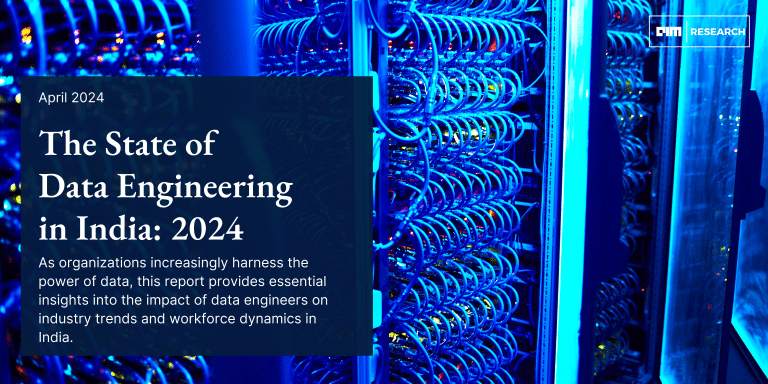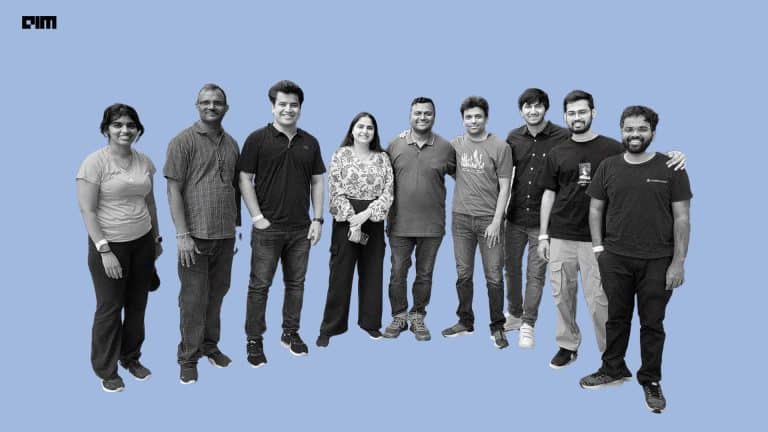In an increasingly digital world, organizations are striving to become smarter to provide more business impact. This acumen is largely derived by innovation, leveraging massive amounts of available data to intelligently predict and proactively act upon customer behaviours and market trends.
Data science is often an open and adaptive field, embracing new and emerging technologies. This is the place where new technologies are incubated and adopted to explore new horizons. Interestingly, to begin with, data science is more predictive than conclusive. Therefore, determining the quantum of impact may or may not be possible.
There is also often a challenge in garnering cross-team collaborations when the impact is not articulated in specific terms. A data science team comprises of a group of talented individuals with the right credentials. However, a team built on a culture of curiosity, passion and drive for the art of problem-solving, is what differentiates them and leads to success and productivity.
Here are some top trends to help unleash the true potential of data analytics:
1. Embrace diversity:
You breathe life into your business when your data science team is a strong union of best-in-class technical expertise and robust domain knowledge. A collaborative team with diversity in business backgrounds and a mix of technology and functional skills is critical to a productive data science team. You will need a combination of machine learning / deep learning experts and mathematicians (statisticians) who understand and apply algorithms to understand data; tech experts aka data engineers to build data pipelines for analysis and you will also need functional gurus aka domain experts who work through business complexities and challenges. Investing in just one or two of the above kinds is as futile as finding one man who can do it all, which is utopian.
2. Prioritization is key:
Once you have your team in place, the next step is to establish an operating model. Like a carefully curated dish, the activities of the team need to be deconstructed into sizable prioritized phases. Practical success criteria, measuring every effort that should be backed by continuous communication. Clearly defined business priorities help in showcasing business value, and effective communication with stakeholders and consumers of insights helps in identifying bottlenecks.
3. Get Experimental
When you experiment, you scale new horizons and this is no different in data science. In data science, every project begins with a problem and a set of hypotheses that needs to be tested. There is no definitive roadmap on the processes but there is a lot of scope for experimentation and innovation. Curious minds in data science is a huge asset when you want to uncover the ‘what’s’ and ‘why not’s’. Innovation thus becomes the mother of motivation.
4. Welcoming Change Management
Producing insights from advanced analytics is a comparatively simple process but the key lies in making the insights actionable and value-driven. Actionable insights will touch every element and facet of an enterprise and make it more productive and meaningful. Here the need to develop an analytics mindset becomes imperative. The consumers of analytics may neither be data scientists nor build models, but they can leverage the power of analytics insights for core businesses and functions.
Creating an analytics-driven enterprise may be tougher than you think. Historically, change management has never been easy. It is a tough ordeal to persuade people to use new tools, as it can be conceived to be confusing, to begin with. However, the realization sets in with the knowledge that, while technology can produce actionable data, human intervention is needed to use the right data at the right time in order to derive meaningful results. An analytics-driven culture compels business functions to focus on solving business issues rather than merely looking at improvising individual tasks or activities.
5. Role of IT in Data Analytics
Successful data sciences initiatives need co-operation across domains, reporting structures and functional responsibilities. A healthy collaboration between analytics and business teams, especially IT, is critical to the overall success of an enterprise. This can be possible only when teams and functions witness the impact data sciences can have on their routine functions and activities. Data science experts encourage cross-team collaboration for the success of enterprise-wide business goals and vision.
6. Data Accuracy = Better Analysis
Access to a data bank of high quality and precision is directly proportional to the accuracy of analysis. The successful analysis is better leveraged by business users for overall business outcomes. Data quality and availability is an important discipline that is the cornerstone of every organization. The goal of data accuracy goes all the way back from the collection, data entry and cleansing to sharing. The importance of data has spurred off the creation of new roles and responsibilities in every organization. Therefore, it is no surprise that data accuracy is massively responsible for better data analytics, and better insights drive business goals.
Conclusion
In modern data science, libraries can do almost everything for you. What they cannot do for you is 1) understand what your client’s problem is and 2) explain to the client what your solution to their problem will be. To achieve this, organizations need an environment that allows data scientists to stumble onto the discovery of things/areas that were previously unknown territories. Once you discover the unknown, then you can work to know it, but only after you first discover the unknown itself.




















































































